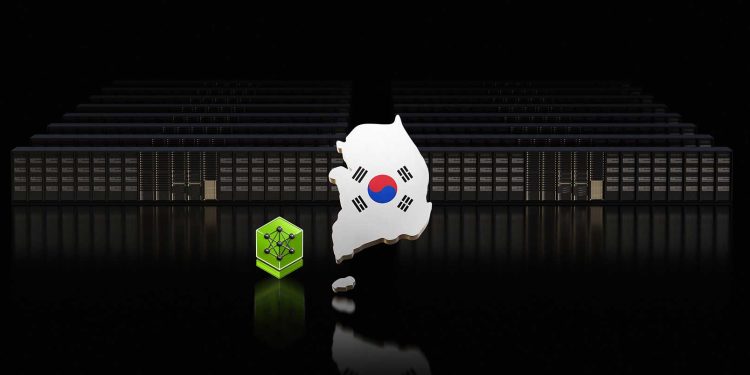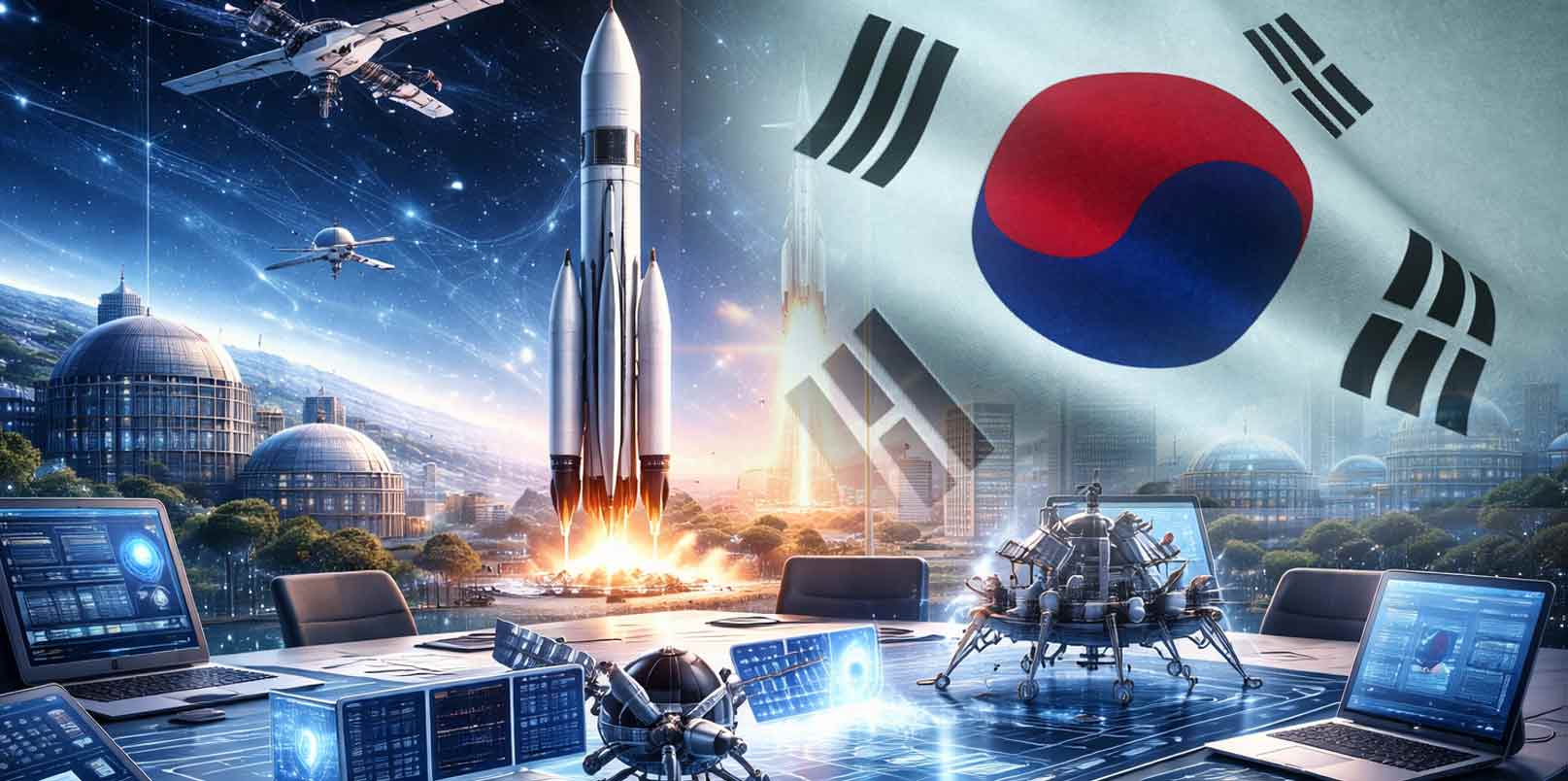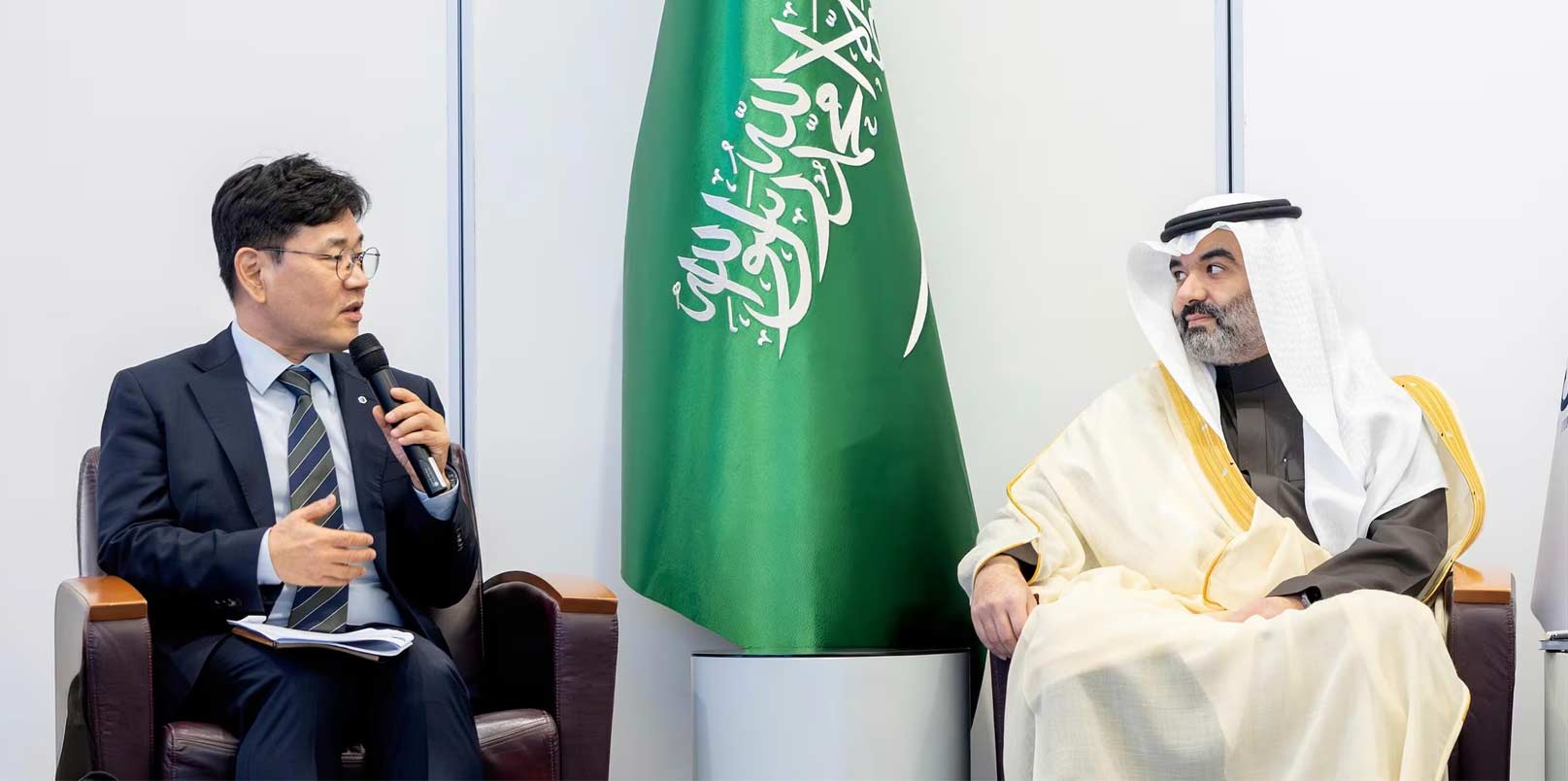Korea has set a new benchmark for AI-driven industrial strategy through a landmark partnership with NVIDIA. With more than 260,000 GPUs secured and cross-sector cooperation spanning robotics, semiconductors, and startups, the initiative positions Korea at the center of Asia’s next-generation innovation economy—where hardware, AI, and venture ecosystems now converge.
Korea and NVIDIA Form Comprehensive AI Partnership
On the sidelines of APEC 2025 in Gyeongju, President Lee Jae-myung met NVIDIA CEO Jensen Huang to discuss and initiate a comprehensive AI cooperation agenda.
The agreement, joined by Korea’s top conglomerates—Samsung Electronics, SK Group, Hyundai Motor Group, and Naver—lays the foundation for a unified AI ecosystem covering infrastructure, physical AI, and startup support.
The Ministry of Science and ICT (MSIT) confirmed that over 260,000 NVIDIA GPUs will be allocated across the public and private sectors, supplied in phases through 2030.
- The public sector will receive approximately 50,000 GPUs for developing sovereign AI foundation models and national computing centers.
- The private sector, led by Samsung, SK, Hyundai, and Naver, will utilize over 200,000 GPUs to power AI manufacturing, smart mobility, and industrial AI applications.
This expansion raises Korea’s total GPU capacity from 60,000 to 320,000 units, significantly expanding Korea’s AI computing capacity within the Asia-Pacific region. Since NVIDIA’s GPUs rely on Samsung and SK Hynix high-bandwidth memory (HBM), the deal also reinforces Korea’s semiconductor export competitiveness.
Physical AI and Next-Generation Collaboration
The discussion focused particularly on Physical AI, referring to the integration of AI into real-world hardware systems such as robots and autonomous vehicles.
MSIT, Hyundai Motor Group, and NVIDIA signed a tripartite memorandum of understanding (MoU) to advance Physical AI through shared infrastructure, R&D on smart mobility, AI-driven robotics, and GPU-based computing platforms.
Hyundai and NVIDIA will lead infrastructure and technical development, while MSIT provides policy and administrative support. This initiative is expected to accelerate Korea’s physical AI capacity and workforce development.
In parallel, Samsung, Korea’s three telecom companies (SKT, KT, LG U+), the Electronics and Telecommunications Research Institute (ETRI), and Yonsei University signed an MoU with NVIDIA to jointly develop AI-RAN (AI Radio Access Network) technology—integrating computing and communication to improve energy efficiency and enable new AI services.
SK Group will collaborate with NVIDIA to establish Asia’s first enterprise-led manufacturing AI cloud, designed to support startups and public institutions through simulation and digital twin environments.
Naver pledged to leverage its cloud infrastructure to enhance AI-driven competitiveness in Korea’s mobility and logistics sectors.
Expanding Startup and Research Collaboration
To strengthen the startup pipeline, MSIT, the Ministry of SMEs and Startups (MSS), and NVIDIA discussed expanding the N-UP (NVIDIA-Up) Program, which has supported 151 AI startups since 2020.
The program will scale up by 2026 to focus on physical AI, global market entry, and R&D commercialization. And this will become a follow-up effort, following the newly-formed Physical AI Startup Alliance between NVIDIA’s and major Korean venture capital firms.
Korea’s KISTI (Korea Institute of Science and Technology Information) will also collaborate with NVIDIA on supercomputing and hybrid quantum computing projects, including development of the sixth-generation HANGANG supercomputer and AI foundation models for scientific research.
Korea Targets “AI Capital of Asia-Pacific” with NVIDIA Partnership Vision
President Lee Jae-myung emphasized the broader vision of the partnership:
“Korea’s goal is to become the AI capital of the Asia-Pacific. If NVIDIA drives the speed of innovation, Korea will guide its direction. The government will provide full support to ensure this collaboration contributes globally.”
Bae Kyung-hoon, Deputy Prime Minister and Minister of Science and ICT, stated:
“Expanding AI infrastructure and co-developing technology with NVIDIA enhances Korea’s manufacturing and innovation capabilities. We will continue advancing global partnerships to realize our vision of becoming one of the world’s top three AI powers.”
Competing in the Global GPU Race
Korea’s 260,000-GPU acquisition secures a strategic foothold in global AI infrastructure, yet it highlights the scale gap with U.S. Big Tech. Meta currently operates around 350,000 GPUs, far exceeding national-scale acquisitions. Meanwhile xAI, Tesla, and AWS each hold tens of thousands.
Industry observers note that while Korea’s progress is significant, long-term competitiveness will depend on domestic AI chip development and sustained investment in AI manufacturing ecosystems.
Still, by combining semiconductor expertise, AI capacity, and policy coordination, Korea’s public-private model offers a compelling alternative to the centralized, Big Tech-led ecosystem seen elsewhere.
Korea’s Venture Edge in AI Manufacturing
The NVIDIA partnership directly reinforces Korea’s position as a venture and innovation hub in Asia. It connects semiconductors, AI, and startups into one ecosystem—where deep-tech ventures can test, train, and commercialize new models using shared national GPU resources.
This alignment also complements MSS’s efforts to nurture global-ready startups through AI manufacturing alliances and government-backed accelerator programs. It also supports Korea’s missions in AI Transformation (AX) as well as ambitions to become a top-tier powerhouse in the AI and robotics domains.
Korea – NVIDIA Alliance: AI Diplomacy in Action
The Korea – NVIDIA alliance represents the country’s entry into AI diplomacy, where innovation, infrastructure, and global partnerships converge. As other economies scramble for GPU access, Korea’s early coordination between government, conglomerates, and startups sets an example of coordinated public-private AI governance in the region.
This partnership also signals that South Korea is now moving to become the intelligent industry hub of Asia, defining how technology, research, and entrepreneurship intersect in the era of AI-driven growth.
🤝 Looking to connect with verified Korean companies building globally?
Explore curated company profiles and request direct introductions through beSUCCESS Connect.
– Stay Ahead in Korea’s Startup Scene –
Get real-time insights, funding updates, and policy shifts shaping Korea’s innovation ecosystem.
➡️ Follow KoreaTechDesk on LinkedIn, X (Twitter), Threads, Bluesky, Telegram, Facebook, and WhatsApp Channel.






